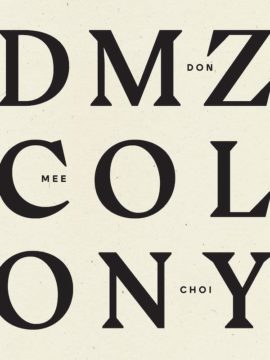Jae Kim at the LARB:
 When asked in an interview with Words Without Borders to give an example of an untranslatable word in Korean, Choi answers that duplicatives, “adverbs or adjectives that are repeated to form a pair,” poses a challenge. “Such doubling is the norm in Korean, and it accentuates the sounds, which can also have the phonetic or mimetic effects of onomatopoeia.” Her solution is often to use a similar tactic in English, such as “swarmsswarms” or “waddlewaddling.” In “Orphan Kim Seong-rye,” she uses the doubling technique twice: “Oblong oblong” and “circled and circled.” While the latter sounds natural in English, the former is more difficult to digest. It demands the reader’s attention, and the reader lingers over the phrase — oblong oblong, oblong oblong… — until all that remains is the sound.
When asked in an interview with Words Without Borders to give an example of an untranslatable word in Korean, Choi answers that duplicatives, “adverbs or adjectives that are repeated to form a pair,” poses a challenge. “Such doubling is the norm in Korean, and it accentuates the sounds, which can also have the phonetic or mimetic effects of onomatopoeia.” Her solution is often to use a similar tactic in English, such as “swarmsswarms” or “waddlewaddling.” In “Orphan Kim Seong-rye,” she uses the doubling technique twice: “Oblong oblong” and “circled and circled.” While the latter sounds natural in English, the former is more difficult to digest. It demands the reader’s attention, and the reader lingers over the phrase — oblong oblong, oblong oblong… — until all that remains is the sound.
more here.
